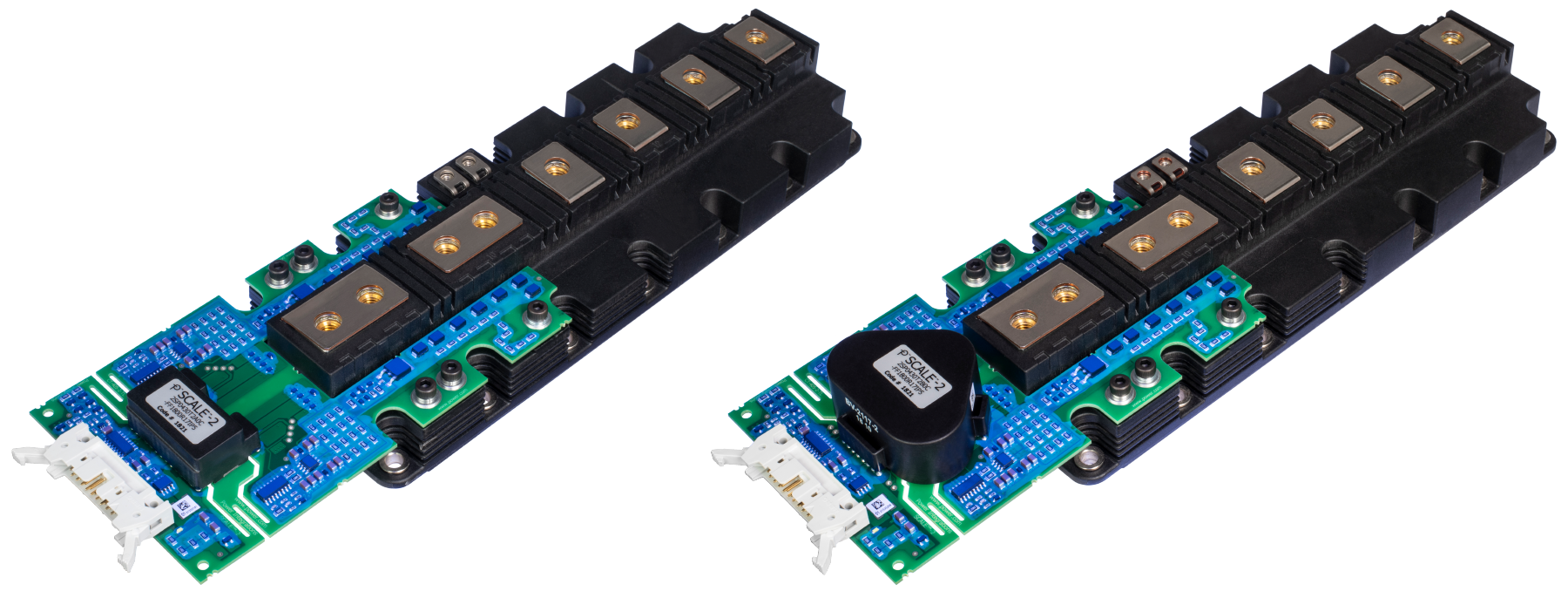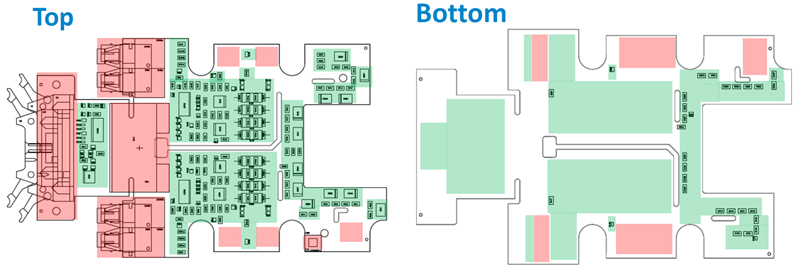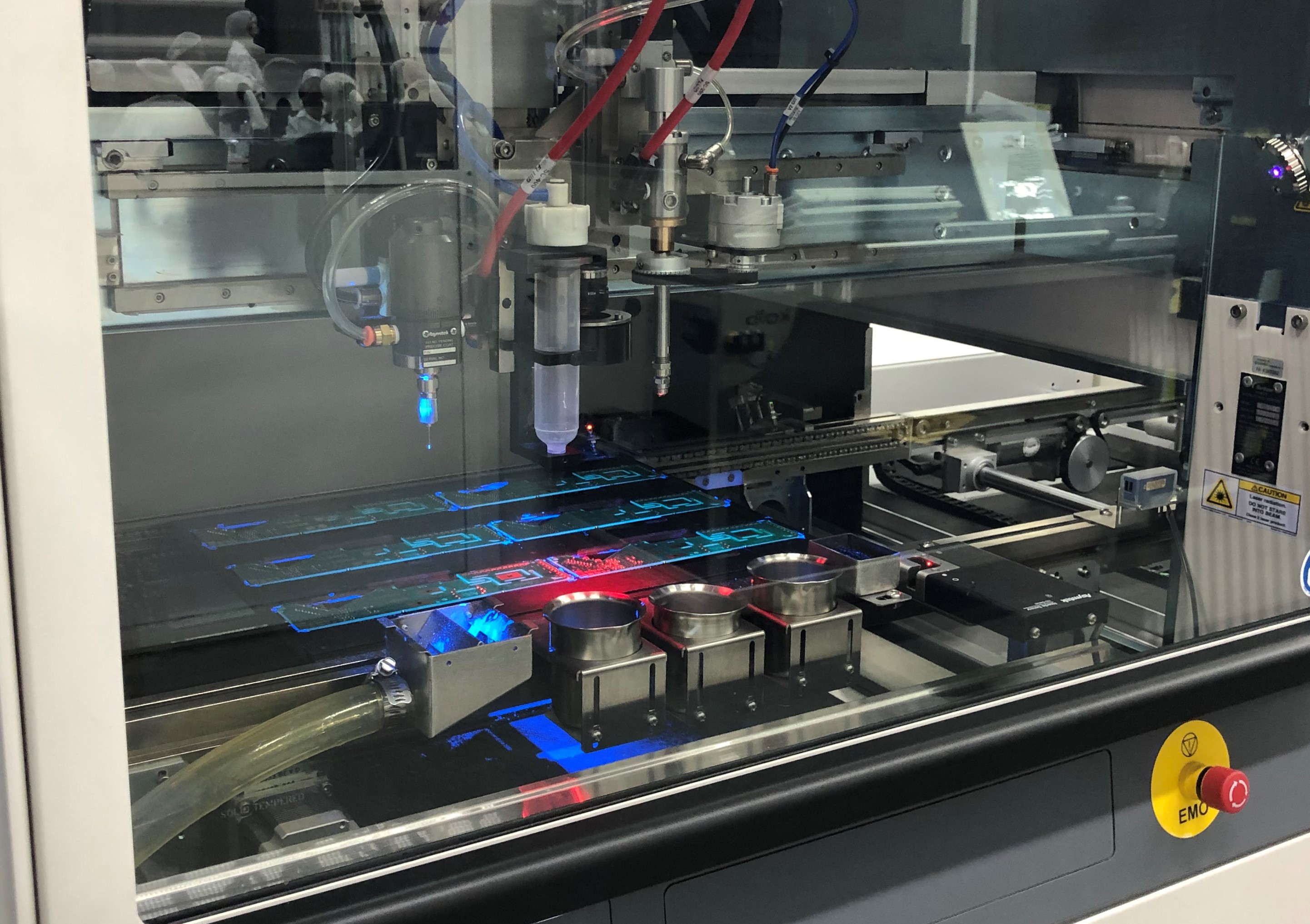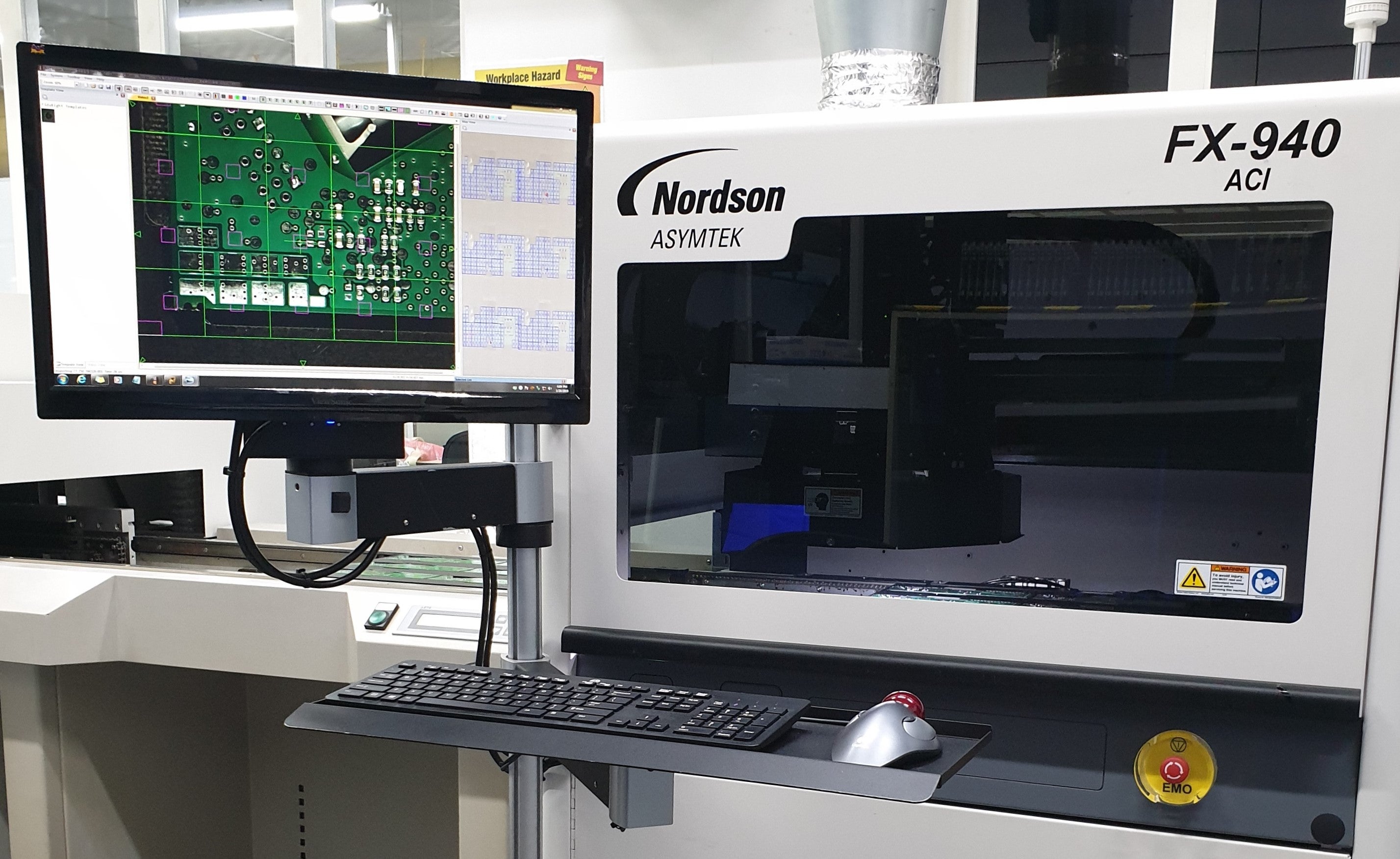Conformal Coating
What is Conformal Coating?
Conformal coating is a process of applying a thin polymeric film which "conforms" to the contours of a printed circuit board in order to protect the board's components. It is applied to electronic circuitry to act as protection against moisture, dust, chemicals, and temperature extremes that, if uncoated (non-protected), could result in damage or failure of the electronics to function. When electronics must withstand harsh environments and added protection is necessary, Power Integrations can coat the board assemblies as part of the production process.
Download the PDF: Conformal Coating for Gate Drivers
 |
 |
What are the Benefits of Conformal Coating from Power Integrations?
- Factory-coated gate drivers reduce inventory cost, lead time and overall cost of ownership by eliminating the need for manufacturers to send boards to subcontractors for cleaning and coating
- By testing, cleaning and coating the boards in our facility, we reduce the opportunity for units to be contaminated prior to coating
- Full conformal coating qualification with testing in accordance to IEC 60068-2 standards
- Controlled process with 100% optical inspection at end of line

Which Applications Benefit from Conformal Coating?
Any application in which the IGBT Module and driver are exposed to harsh envioronmental conditions is a potential application for conformal coated parts. These include:
- Offshore and onshore wind parks
- Traction main and auxiliary inverter
- HVDC stations
- Photovoltaics plants
- Medium Voltage Drives in mining and oil and gas industry
How are PI's conformal coated products qualified?
Power Integrations uses an advanced acrylic lacquer, standard for the automotive industry. The highly automated process is qualified in accordance with IEC 60068-2 tests. Several tests are performed in order to obtain qualification:
- Vibration (sinusoidal) test parameters according to IEC 60068-2-6:2008-10
- Shock test parameters according to IEC 60068-2-27:2010-02
- Damp heat, steady state test parameters according to IEC 60068-2-78:2012-10
- Cold test parameters according to IEC 60068-2-1:2007-03
- Dry heat test parameters according to IEC 60068-2-2:2007-07
- Thermal cycle test parameters according to IEC 60068-2-14:2009-01
- Salt mist test test parameters according to IEC 60068-2-11



